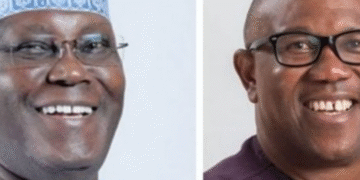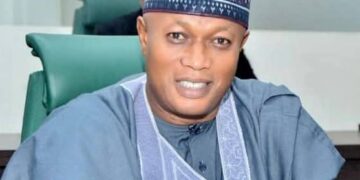Former Kaduna State governor, Nasir El-Rufai, has delivered a damning indictment of Nigeria’s judiciary, describing a system where justice is “for sale” and public trust has collapsed due to rampant corruption and weak institutions.
El-Rufai made the assertion in his keynote address at the Nigerian Bar Association (NBA) Bwari Branch, where he pulled no punches in analysing what he called the “unbridgeable gulf between law and justice” in Africa’s most populous nation.
El-Rufai, a former minister, painted a bleak picture of Nigeria’s legal system. “What Nigerian courts administer is law, not justice,” he declared. “There is a seemingly unbridgeable gulf between the two. Not only is justice wanting but the law that is administered seems to be according to the wishes of the Executive.”
The former governor highlighted several systemic failures eroding judicial integrity: Forum Shopping” Epidemic: The practice where litigants seek favourable rulings from particular judges has become institutionalised, especially in political cases.
“The weaponisation of ex parte orders in political matters” has turned courts into tools for political manipulation rather than impartial arbiters. Chronic delays in cases and procedural inefficiencies have created a system where “the perception that justice is for sale and available only to the rich and powerful” has become widespread.
Drawing on Nigeria’s judicial history, El-Rufai contrasted today’s compromised system with the “golden years” under jurists like Justice Chukwudifu Oputa, who famously warned: “If the judiciary itself is corrupt, where do you go from there?”
“Today, after 26 unbroken years of civilian governance, it is quite hard to mention names of jurists who we can all agree remind us of days gone recently past,” El-Rufai lamented. He noted that where citizens once “tiptoed past the homes of Judges,” today’s judicial officers face public contempt and even physical assaults – a stark measure of how far the institution has fallen.
The former governor saved particular criticism for the National Judicial Council (NJC), the body responsible for judicial appointments and discipline:
“The NJC which, I would respectfully say, has not succeeded in its mission and is now itself desperately in need of reform and restructuring.”
El-Rufai proposed concrete solutions to reclaim judicial integrity:
1.Transparent Appointments: “The criteria for elevation to the Bench… must be raised and made devoid of even the slightest hint of opacity.”
2.Strict Discipline: “The discipline of erring judicial officers must be very firmly and strictly enforced.”
3.NJC Overhaul: Complete restructuring of the “desperately” failing judicial council.
- Better Protections: Addressing poor working conditions and security threats facing judicial officers.
In a pointed challenge to his audience, El-Rufai argued lawyers share blame for the crisis: “If the judiciary is to regain its moral authority, lawyers must lead the way there. We must speak out—not only when the Bench errs but also when the Bar fails.”
He reminded attendees that “every member of the Bench was once a member of the Bar,” urging legal practitioners to become “architects of institutional health” rather than “mere litigators of symptoms.”
The speech framed Nigeria’s judicial crisis as symptomatic of broader institutional failures, recalling how the country squandered its 2007 economic advantage when it had “$40bn as net foreign reserves and nearly $30bn in the Excess Crude Account.”
El-Rufai warned that without urgent judicial reform, Nigeria risks complete erosion of the rule of law. His closing invoked both Latin maxim and Nigerian pidgin: “Fiat Justitia. Nil Tremefacit. Or to use the language of our streets: ‘Let Justice Reign. No Shaking.'”












































Discussion about this post